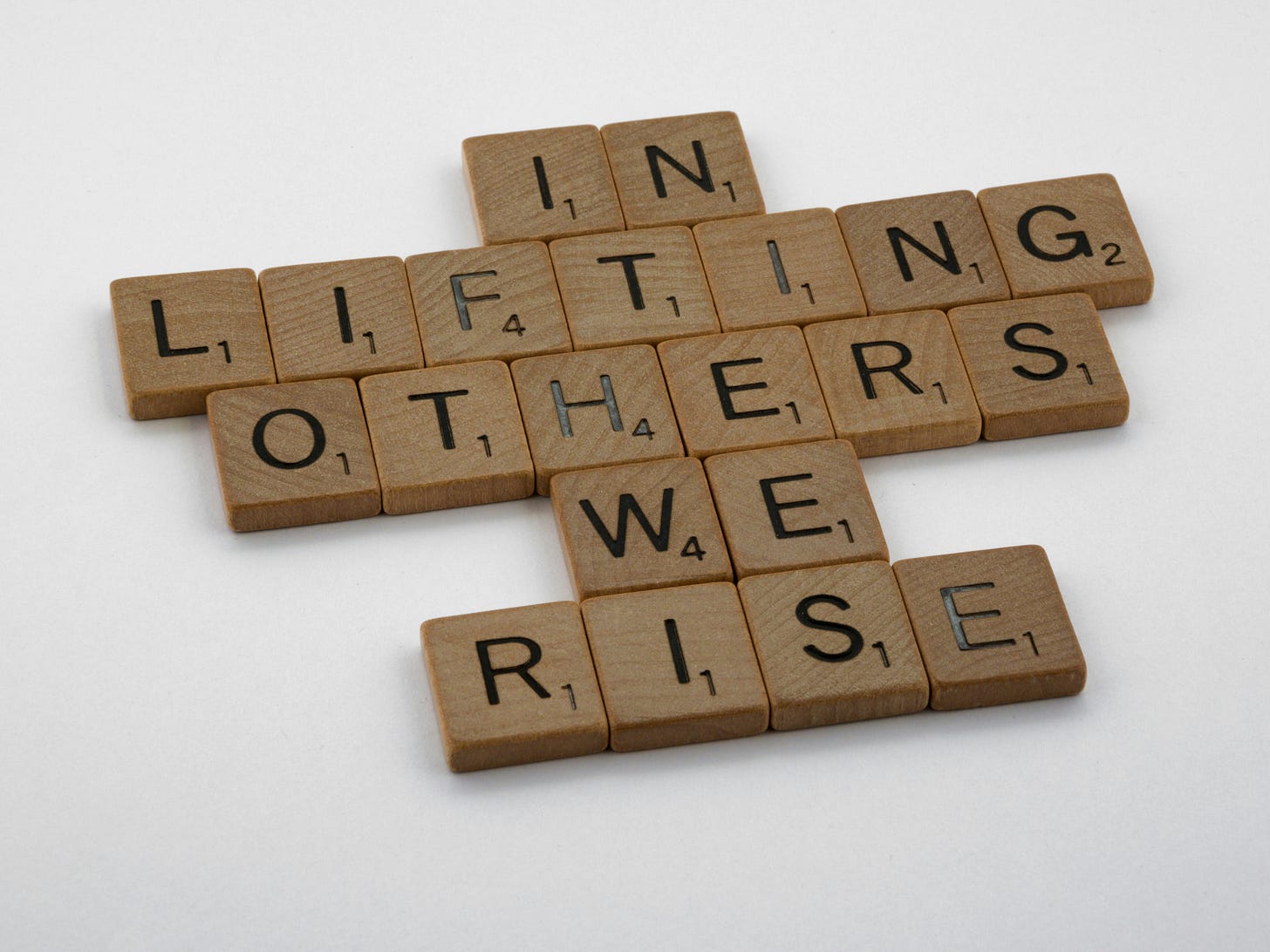Why DEI?
A rose, by any other name, would smell as sweet
The idea of diversity, equity, and inclusion in our workplaces, a.k.a. DEI, has been in the news recently, and not in a good way.
For a seemingly growing swath of our population, DEI is perceived as a zero-sum game—if you win, I have to lose.
Except that’s ludicrous. We’re not dividing up a pizza or a pie. This isn’t a football game. Creating an environment that’s equitable and inclusive for everyone benefits …
(checks notes)
… oh hey, it benefits EVERYONE.

The concepts are simple …
Diversity: do you have representation on your team that would expand your thinking and help inform your product/service? If not, why not? We’ve all seen what happens when diverse perspectives are not included in design processes—we get racist soap dispensers and products that aren’t safe for women.
Equity: is everyone treated fairly on your team, not only by policy but in practice and in pay? I met a CEO recently who thought they were equitable, but after doing a comp analysis found they weren’t doing as good of a job as they thought. So you know what they did? They fixed everyone’s pay. 👏👏👏
Inclusion: does everyone feel respected and valued on your team, with equal opportunity to participate and contribute? Little things can make a big difference in creating inclusive culture—representation in leadership, language, and paying attention to food. Who knew?

Y’all know I am a strong and lifelong proponent of DEI. But I’ll concede … maybe we have a branding problem now?
I saw a comedian recently who suggested it’s the words, not the concepts, that are the problem. “No one would argue with variety, fairness, and making everyone feel welcome,” he said.
Perhaps we’ve allowed the term “DEI” to be cast with so many aspersions that it’s unredeemable—we’ve reached the point of no return.
So much so, that some university campuses are now turning to a post-DEI framework of pluralism, described as:
“The model aims to help students live and learn together—making everyone feel welcome, and also helping students navigate the conflicts that inevitably arise in a community where people have different world views. Pluralism demands that conservative evangelicals who don’t believe in same-sex marriage be welcomed to campus alongside gay students, and that political conservatives who oppose affirmative action have fruitful discussions with people of color.”
What Comes After D.E.I.?, The New Yorker, April 14, 2025
Sounds oddly familiar to me, but no matter. A rose by any other name, and all that …
I honestly don’t give a f*** what you call it—just do it, y’all.
Creating environments where everyone feels welcomed, where we can treat each other with respect, regardless of our differences—that’s important work, no matter what you call it.
And right now—at this particular moment in time—that work is more urgent and important than ever.
Bonus read: This is not one of mine, but it’s a great perspective on inclusion from Jonathan Sauder on LinkedIn—“Do I Belong Here?” Why I Changed My Mind About Inclusion.

